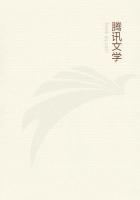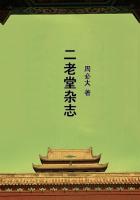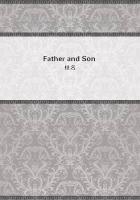Boni in the course of the memorable excavations which he conducted in the Roman forum at the end of the nineteenth century. But the ritual of the various Latin towns seems to have been marked by great uniformity; hence it is reasonable to conclude that wherever in Latium a Vestal fire was maintained, it was fed, as at Rome, with wood of the sacred oak. If this was so at Nemi, it becomes probable that the hallowed grove there consisted of a natural oak-wood, and that therefore the tree which the King of the Wood had to guard at the peril of his life was itself an oak; indeed, it was from an evergreen oak, according to Virgil, that Aeneas plucked the Golden Bough. Now the oak was the sacred tree of Jupiter, the supreme god of the Latins. Hence it follows that the King of the Wood, whose life was bound up in a fashion with an oak, personated no less a deity than Jupiter himself. At least the evidence, slight as it is, seems to point to this conclusion. The old Alban dynasty of the Silvii or Woods, with their crown of oak leaves, apparently aped the style and emulated the powers of Latian Jupiter, who dwelt on the top of the Alban Mount. It is not impossible that the King of the Wood, who guarded the sacred oak a little lower down the mountain, was the lawful successor and representative of this ancient line of the Silvii or Woods. At all events, if I am right in supposing that he passed for a human Jupiter, it would appear that Virbius, with whom legend identified him, was nothing but a local form of Jupiter, considered perhaps in his original aspect as a god of the greenwood.
The hypothesis that in later times at all events the King of the Wood played the part of the oak god Jupiter, is confirmed by an examination of his divine partner Diana. For two distinct lines of argument converge to show that if Diana was a queen of the woods in general, she was at Nemi a goddess of the oak in particular. In the first place, she bore the title of Vesta, and as such presided over a perpetual fire, which we have seen reason to believe was fed with oak wood. But a goddess of fire is not far removed from a goddess of the fuel which burns in the fire; primitive thought perhaps drew no sharp line of distinction between the blaze and the wood that blazes. In the second place, the nymph Egeria at Nemi appears to have been merely a form of Diana, and Egeria is definitely said to have been a Dryad, a nymph of the oak.
Elsewhere in Italy the goddess had her home on oak-clad mountains. Thus Mount Algidus, a spur of the Alban hills, was covered in antiquity with dark forests of oak, both of the evergreen and the deciduous sort. In winter the snow lay long on these cold hills, and their gloomy oak-woods were believed to be a favourite haunt of Diana, as they have been of brigands in modern times.
Again, Mount Tifata, the long abrupt ridge of the Apennines which looks down on the Campanian plain behind Capua, was wooded of old with evergreen oaks, among which Diana had a temple. Here Sulla thanked the goddess for his victory over the Marians in the plain below, attesting his gratitude by inscriptions which were long afterwards to be seen in the temple. On the whole, then, we conclude that at Nemi the King of the Wood personated the oak-god Jupiter and mated with the oak-goddess Diana in the sacred grove. An echo of their mystic union has come down to us in the legend of the loves of Numa and Egeria, who according to some had their trysting-place in these holy woods.
To this theory it may naturally be objected that the divine consort of Jupiter was not Diana but Juno, and that if Diana had a mate at all he might be expected to bear the name not of Jupiter, but of Dianus or Janus, the latter of these forms being merely a corruption of the former. All this is true, but the objection may be parried by observing that the two pairs of deities, Jupiter and Juno on the one side, and Dianus and Diana, or Janus and Jana, on the other side, are merely duplicates of each other, their names and their functions being in substance and origin identical. With regard to their names, all four of them come from the same Aryan root DI, meaning bright, which occurs in the names of the corresponding Greek deities, Zeus and his old female consort Dione. In regard to their functions, Juno and Diana were both goddesses of fecundity and childbirth, and both were sooner or later identified with the moon. As to the true nature and functions of Janus the ancients themselves were puzzled; and where they hesitated, it is not for us confidently to decide. But the view mentioned by Varro that Janus was the god of the sky is supported not only by the etymological identity of his name with that of the sky-god Jupiter, but also by the relation in which he appears to have stood to Jupiter's two mates, Juno and Juturna. For the epithet Junonian bestowed on Janus points to a marriage union between the two deities; and according to one account Janus was the husband of the water-nymph Juturna, who according to others was beloved by Jupiter. Moreover, Janus, like Jove, was regularly invoked, and commonly spoken of under the title of Father. Indeed, he was identified with Jupiter not merely by the logic of the learned St.
Augustine, but by the piety of a pagan worshipper who dedicated an offering to Jupiter Dianus. A trace of his relation to the oak may be found in the oakwoods of the Janiculum, the hill on the right bank of the Tiber, where Janus is said to have reigned as a king in the remotest ages of Italian history.















